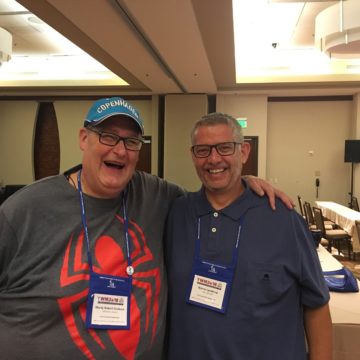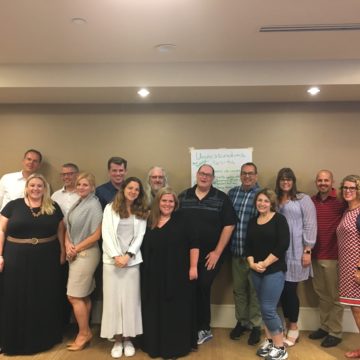Reflections by: Bjarne Lynderup
Cross-posted to: NovoNordisk.com
Being overweight is on all levels hard and tough.

However, we have not even left home yet. Imagine what it’s like to be overweight when you can’t fit in the bus seat on the way to the doctor, and the moment you finally arrive at the surgery, the furniture is simply not intended for people who are overweight. Imagine you wanted to do-up your flat but can’t have the furniture you fancy because it is not designed or built to be used by overweight customers. Or if you needed new clothes, it can be difficult to find anything large enough – or even more difficult to get any smart XXL-sized designs.
There are various personal challenges that fill your day with difficulty – whether it is to tie your shoelaces, walk longer distances, have sleeping problems or low energy levels, etc.
The examples above are just a tiny fraction of all the unintentional or otherwise oblivious obstacles overweight people often run into. But it gets even worse when you face the deliberate stigmatization aimed toward those suffering from obesity. Statements that you should eat less and exercise more, you have no self-discipline, you are lazy, etc. Statements that are directly linked to you as a person, implying it is your fault that you are overweight.
Remember, it’s not your fault. Obesity is a chronic disease and should be treated as such. If you have been overweight for a long time, your body will certainly work against your desire to lose weight. We’ve all been reading about that. However, my post will attempt to demonstrate how we could help each other at the very beginning of our weight-loss journey, reach our goals and stand strong along the way.
Community Matters for Our Health and Well-being

A circle of friends, or all these kind people around us, make a group that is bigger and more present than most of us are really aware of. There have been times I was not even able to reach out for help, but there were always friends who stepped into my life. They saved me, and then taught me the importance of being together – the meaningfulness of trust.
Whether you lose weight through diet, exercise, medicine, surgery or a combination of these, it’s crucial that you have someone you can rely on, talk to, write to, share thoughts with, get support from, be “reprimanded” by and get encouragement/praise from. It’s even better if you can have people around who understand what obesity actually means. It’s all about being surrounded by people who want only the best for you. It really matters.
Therefore, it is important to embark on a “community-building” kind of thinking so that those affected by obesity have places to meet others who share identical or similar problems. If it hadn’t been for all the good people who lifted me up when I was almost over the edge, I dare not think about what could have happened to me. I have learned that there are actually people who will always be there for me. I have learned I’m not the only one to feel and think that way. Attending our group events, I’ve met new friends and gained new knowledge. I’ve been shown the importance of community.
A “Community Thinking” Kind of Mindset
We can deal with many things, but we have to do it together. It could be a food club where you meet once a week to eat, talk and have a good time together. It may be a walking club where you go hiking as often as you wish. You could meet and exercise together. It could be meetings you hold together in order to become more knowledgeable, try out new forms of exercise or simply learn how to share the story of what it’s like to suffer from obesity.
The power of “community thinking” is that we can actually understand we are not alone. There are others like us who experience what we are experiencing, who are afraid of what we are afraid of and who are fighting the wars we are fighting.
Therefore, we need to turn on the “community building” kind of thinking because medicine, surgery, diet and exercise may not suffice – unless we seek support from others which is perhaps the single most valuable asset we have. You are not alone, and you should definitely not go through your battle all by yourself. Together we are stronger!
